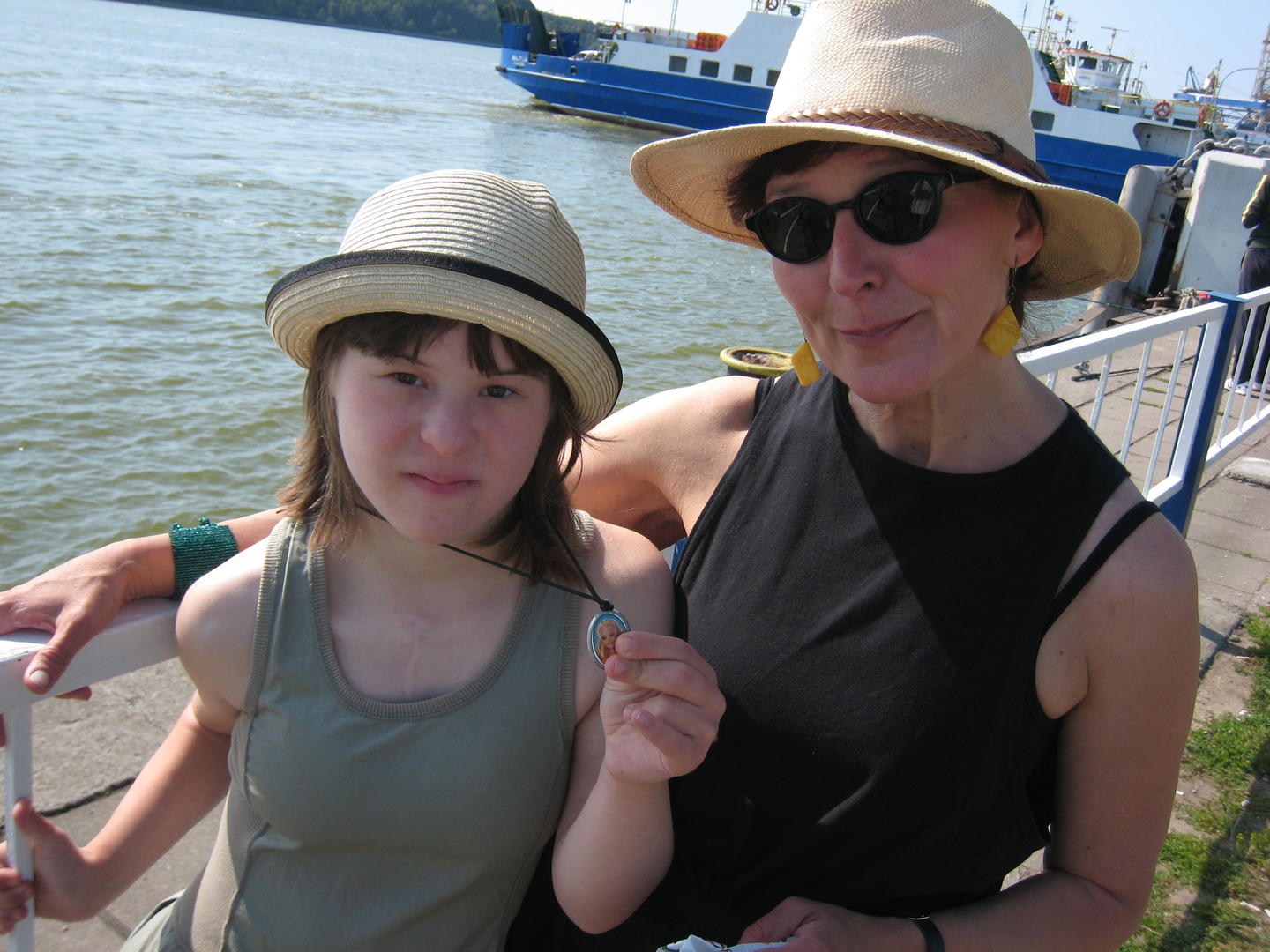For Lithuanians Neringa Bulotaite is a well-known actress, but when the curtain falls and the applause has silenced, Neringa starts her other leading role, as mother of Amelia, her 16 year old daughter who has Down's syndrome. Although it has not always been easy being a mother for a child with Down’s syndrome, Neringa adds that attitudes towards children with disabilities have improved in Lithuania:
“During Amilia’s first years of school, I wanted her to spend as much time as possible with ‘normal’ children in the arts classes, even though there were teachers who were opposed to the idea. Despite her disability, she was treated the same as the others, and did well. Nowadays society has become more tolerant towards those who are different.”
This sometimes challenging role is why Bulotaite is member of ‘Viltis’ (which means ‘hope’ in English), an organisation that campaigns to improve temporary respite services for families with mentally disabled children. ‘Viltis’ and its 53 associate members bring together over 11 000 persons with intellectual disabilities, their parents or guardians.
Neringa and her husband say that they have been luckier than most parents since they are both working as freelance. Nevertheless, Neringa understands that it is difficult for families who don’t have this possibility:
“All families should have a place where they can safely leave their disabled child with a caretaker. More temporary respite services are a real necessity in Lithuania,” the actress says.
Being more inclusive
A key component of the project is to create a standardized model for temporary respite services in Lithuania for mentally disabled children receiving care at home or when they receive care in institutions. This will be achieved by mapping the needs of the children, the parents and the relevant institutions. ‘Viltis’ has visited their project partner, the Icelandic National Association of Persons with Intellectual Disabilities, where they received advice and saw examples of best practice. This included meetings with representatives from care institutions and organisations for people with disabilities.
There is still some way to go before mentally disabled children and their families receive all the support they need, but the work of 'Viltis' is an important stepping stone in order to reach their objectives of integration of people with mental disabilities into society
About the project
The project receives € 77 415 from Iceland, Liechtenstein and Norway through the Lithuanian fund for NGOs.
It started in October 2013 and will end March 2015. The project is being implemented in partnership with the Lithuanian Disability Affairs Department under the Ministry of Social Security and Labour and the Icelandic National Association of Persons with Intellectual Disabilities.
